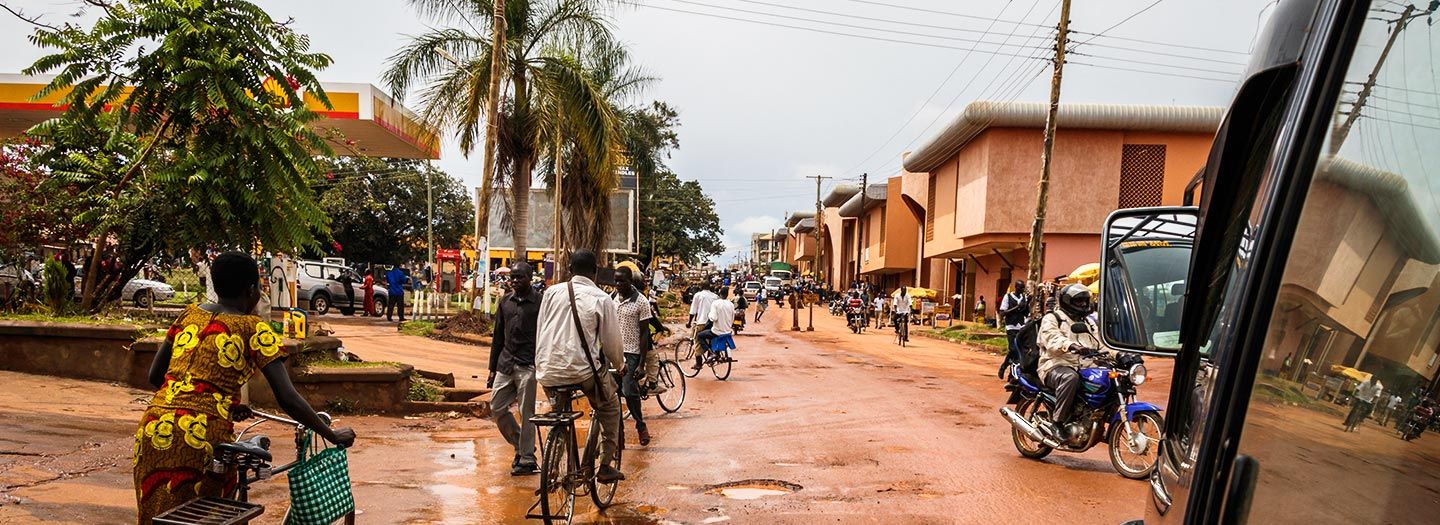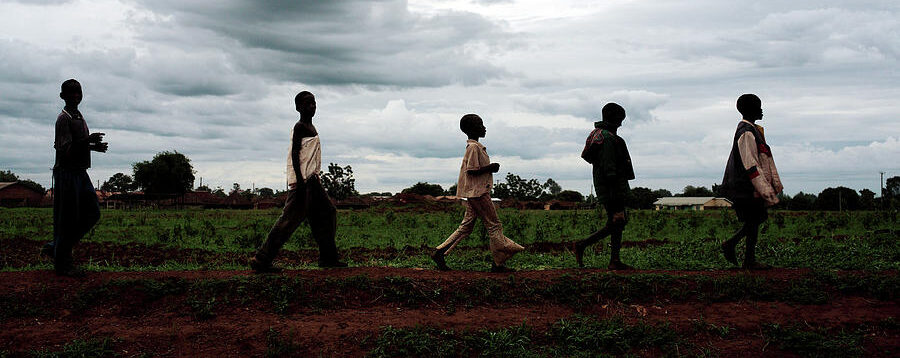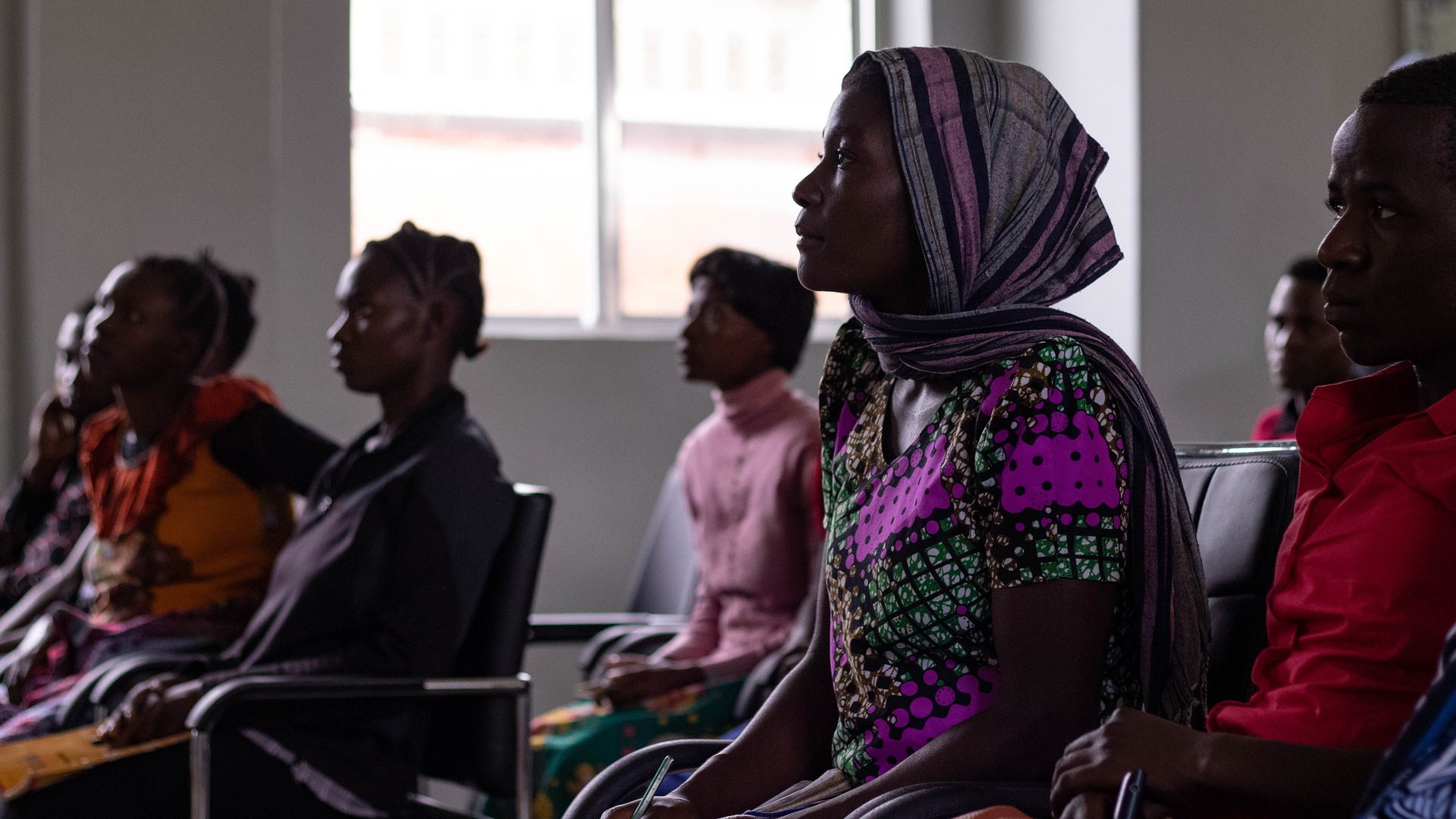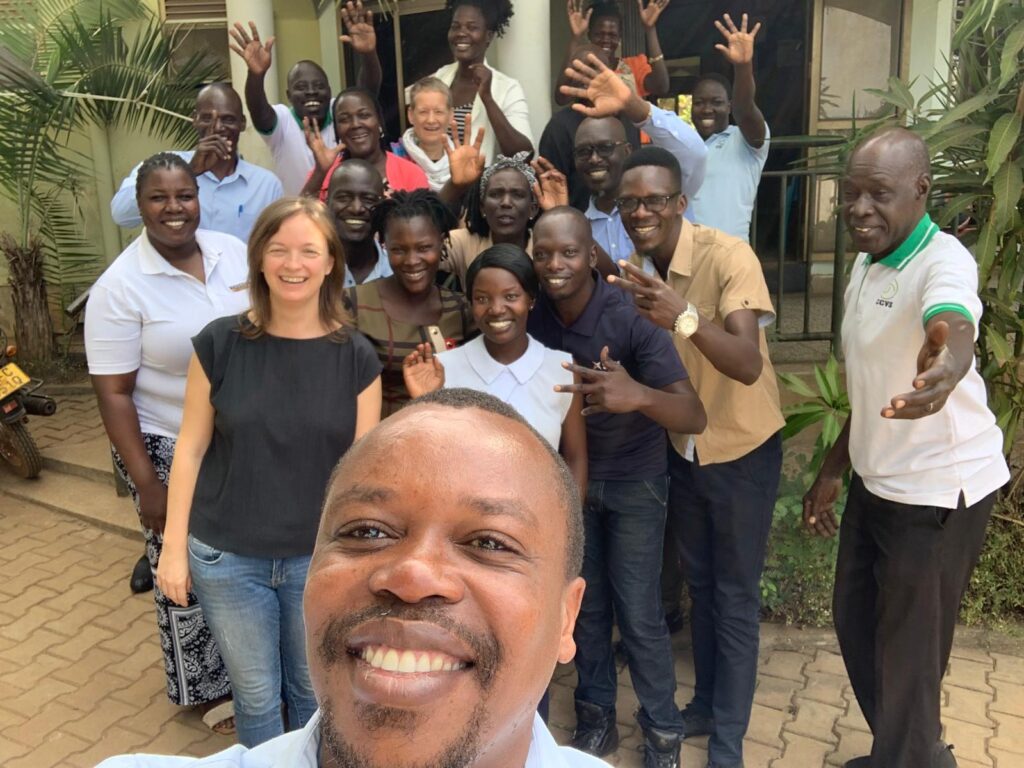CCVS International
Building on a Legacy of Rehabilitation & Research
CCVS-International was initiated in 2008 after the closure of the Rachele Rehabilitation Centre for former child soldiers in Northern Uganda – a project funded by the Belgian Ministry of Foreign Affairs.

Interuniversity Cooperation for War-Affected Children
Following a request of the Belgian Ministry of Foreign Affairs, an interuniversity cooperation was started to conduct research on support for and wellbeing of formerly abducted children and war-affected children in general.
Founding Universities and Leadership
Three Belgian universities gave form to and took up the direction of this centre: Ghent University (Department of Social Work & Social Pedagogy) with Prof. dr. Ilse Derluyn, Vrije Universiteit Brussel (Research Unit Interpersonal, Narrative and Discursive Studies) with Prof. dr. Gerrit Loots, and the University of Leuven (Research Unit Education, Culture and Society) with Prof. dr. Lucia De Haene.
Global Research and Impact
This interuniversity cooperation aims at enhancing the psychosocial wellbeing of children and youth living in vulnerable situations in Southern countries, with research and activities done in eight countries: Bolivia, Uganda, DRCongo, Colombia, Palestine, Uruguay, South Africa and India.
Three Pillars of Action
Its activities are built around three central axes which are closely related:
- Research studying the psychosocial wellbeing of persons living in vulnerable situations in the South. These studies are practice-oriented, which means that the research questions are relevant for practitioners, and that the study results are disseminated as widely as possible. Studies are conducted in collaboration with local universities and researchers.
- Support for children and youth in vulnerable situations in the South: in particular, two counselling centres have been established, one in Eastern DRCongo (Bunia) and one in Northern Uganda (Kitgum), where local staff is involved in a range of diverse activities, all aiming at supporting the psychosocial wellbeing of war-affected persons and their contexts (i.e., psychological counselling, trainings, sensitizations, community therapy, etc.); and
- Large dissemination of practices and knowledge, via, amongst others, the organizations of local workshops, publications, website and international conferences and fora.
CCVS: A Growing Centre of Expertise
With support from the CCVS interuniversity research cooperation, the Peace Building Department (Belgian Ministry of Foreign Affairs), the Trust Fund for Victims, and Vlir-UOS, CCVS-International has grown to become an established expertise and learning centre regarding psychological support for war-affected children, youth and adults.
CCVS Uganda
Mental Health in Northern Uganda
CCVS-Uganda, as a branch of CCVS International, is a specialized organization active in post-war Northern Uganda to promote the mental well-being of individuals and communities affected by war and collective violence.

The Lasting Impact of Conflict on Mental Health
The region of Northern Uganda has endured over two decades of armed conflict, leading to a high prevalence of mental health issues among its residents. Although the region was declared post-conflict in 2007, the far-reaching consequences of prolonged war, displacement, and forced abduction have largely been left unaddressed. To this day, this war still impacts the physical and mental well-being of individuals, families, and communities.
Breakdown of Support Systems and Community Stigma
The breakdown of traditional support systems, combined with high levels of untreated trauma, contributes to the vulnerability of survivors of war violence and their families, and fuels stigmatization of vulnerable groupsin the community. Children and youth are particularly affected, as they endure the effects of parental and community trauma and the related stigma, leading to severe emotional distress.
Social and Economic Consequences of Untreated Trauma
Untreated trauma further intensifies social challenges, like poverty, participation in social and economic activities, domestic and gender-based violence, and substance abuse.
According to the Uganda Bureau of Statistics (UBOS), the Northern region of Uganda has the highest rate of chronic poverty, at 15.1%, compared to 7.1% in Eastern, 5.6% in Western, and 0.4% in Central Uganda.
The Need for Mental Health Support Services
Despite high rates of mental health problems in Northern Uganda, there is a significant lack of accessible and specialized mental health support services. Consequently, there is a pressing need for mental health services that address the long-term impact of war on psychological health, provide specialized care, and offer community-based interventions to enhance social support systems.
Addressing mental health is not only crucial for the well-being of victims and their families but also because of its positive impact on physical health, the social cohesion of communities, and overall productivity.
CCVS DRCongo
CCVS' Work in the Democratic Republic of Congo
CCVS in Bunia, DRC, provides mental health support, research, and local collaborations to aid communities affected by conflict and displacement.

CCVS Support Center in DRC
CCVS has established a support center in Bunia, Eastern Democratic Republic of Congo (DRC) to promote the psychosocial well-being of children, youth, and their families living in vulnerable situations. This center is staffed by local professionals who provide psychotherapeutic support and conduct practice-oriented research to address the mental health needs of the community.
Collaboration with Local Organizations
In addition to direct support services, CCVS collaborates with local organizations and institutions to enhance the capacity for mental health care in the region. Through these partnerships, they aim to develop sustainable interventions that are culturally sensitive and contextually appropriate, ensuring that the services provided are effective and resonate with the local population.
Addressing Mental Health Challenges
The work of CCVS in the DRC is particularly crucial given the ongoing challenges in the region, including conflict and displacement, which have significantly impacted the mental health of communities. By focusing on both immediate support and long-term capacity building, CCVS strives to make a lasting positive impact on the psychosocial well-being of those they serve.
Meet
Our Team & Collaborators
The CCVS team unites researchers, mental health professionals, and partners to support war-affected communities through research, psychosocial care, and innovative mental health approaches.

Professional Team
CCVS-Uganda
The team of CCVS Uganda comprises project officers, clinical team members, psychological counsellors, and support staff. They work together to promote mental health and well-being, particularly in Northern Uganda.
Ketty Lanyero – Clinical Team Leader
Isaac Ojok – M&E Officer
William Mwesigwa – Accountant/HR
Eunice Angeyo – Administrator
Joseph Okidi – Mental health counsellor
Richard Oketcho Jomacol – Mental health counsellor
Vicky Stella Apio – Mental health counsellor
Williams Lony – Mental health counsellor
Asuman Oyee – Mental health counsellor
Daisy Rita Awina – Mental health counsellor
Beatrice Adokorach – Office attendant
Washington Bongomin – Guard
Benjamin Onyango – Guard
Augustine Okwir – Driver

Board of Directors
CCVS-International
The CCVS International operates under the guidance of a Board of Coordinators, comprising representatives from three Belgian universities. This Board provides strategic direction and oversight for the organization’s initiatives. Additionally, an Advisory Board, consisting of experts and representatives from various non-governmental organizations and supporting institutions, convenes annually to offer further guidance and support.
Vacancies
Work with us
The CCVS team unites researchers, mental health professionals, and partners to support war-affected communities through research, psychosocial care, and innovative mental health approaches.
